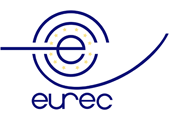menu
- Home
- National Information
- EC-Activities
- EUREC-Activities
- Legislation
- Training Materials
- Literature
- Events
- Newsletter
supported by:

Eurecnet - Training material details
Training material details
Ethik in der Medizin
Author(s): Kahlke, W.; Reiter-Theil, S. (Eds.)
Document type: Book
Year: 1995
Pages: 166
Source: Publishing house: Enke (Stuttgart)
Language(s): German
Classification
National background: GermanyCategory: EU Training Material for Research Ethics
Subject areas: Human experimentation
Focus: Sub-focus: embedded in medical ethics
Content: Case studies; Ethical theories; Important codes; Legal background; Normative reflections
Issues touched: Autonomy, respect, informed consent, subjects unable to consent, role of representatives Beneficence, non-maleficence, risk for the subject Justice, benefits/burdens, research without benefit for the subject, placebos/standard therapy Protection of privacy, data protection, biological material Vulnerable groups, soldiers, prisoners, pregnant women, elderly people Ethics committees, research protocols
Audience: Laboratory workers; Members of ethics committees; teachers of medical ethics; Scientists; Students of natural sciences
Classification remarks: The main focus is on medical ethics in general. Chapter 1 introduces "theoretical foundations", i.e. ethical theories which are also relevant for the field of research ethics. Research ethics itself is discussed in a rather short (5 pages) chapter 12. Finally, in chapter 14 teaching methods are discussed.
Estimation
Theoretical quality remarks: The chapter on "research ethics" starts - as every chapter - with a set of central questions. Theoretical and historical foundations are briefly presented. A case study serves to illustrate the problems raised. Finally, the authors discuss the work of ethics committees ("research ethics in practice").Didactical quality: Didactically prepared material
Didactical quality remarks: The authors of chapter 1 discuss "theoretical foundations" of medical ethics in general, i.e. ethical theories. Chapter 12 briefly introduces some main issues of research ethics. In chapter 14 the author discusses teaching methods of medical ethics. He also gives a report on practical experience. References for further reading are always included.
Overall estimation: worth considering
Estimation remarks: Especially the chapter on teaching methods might be of interest for course development. "Research ethics" itself is presented in a rather short chapter, which does not present the issues in detail.
